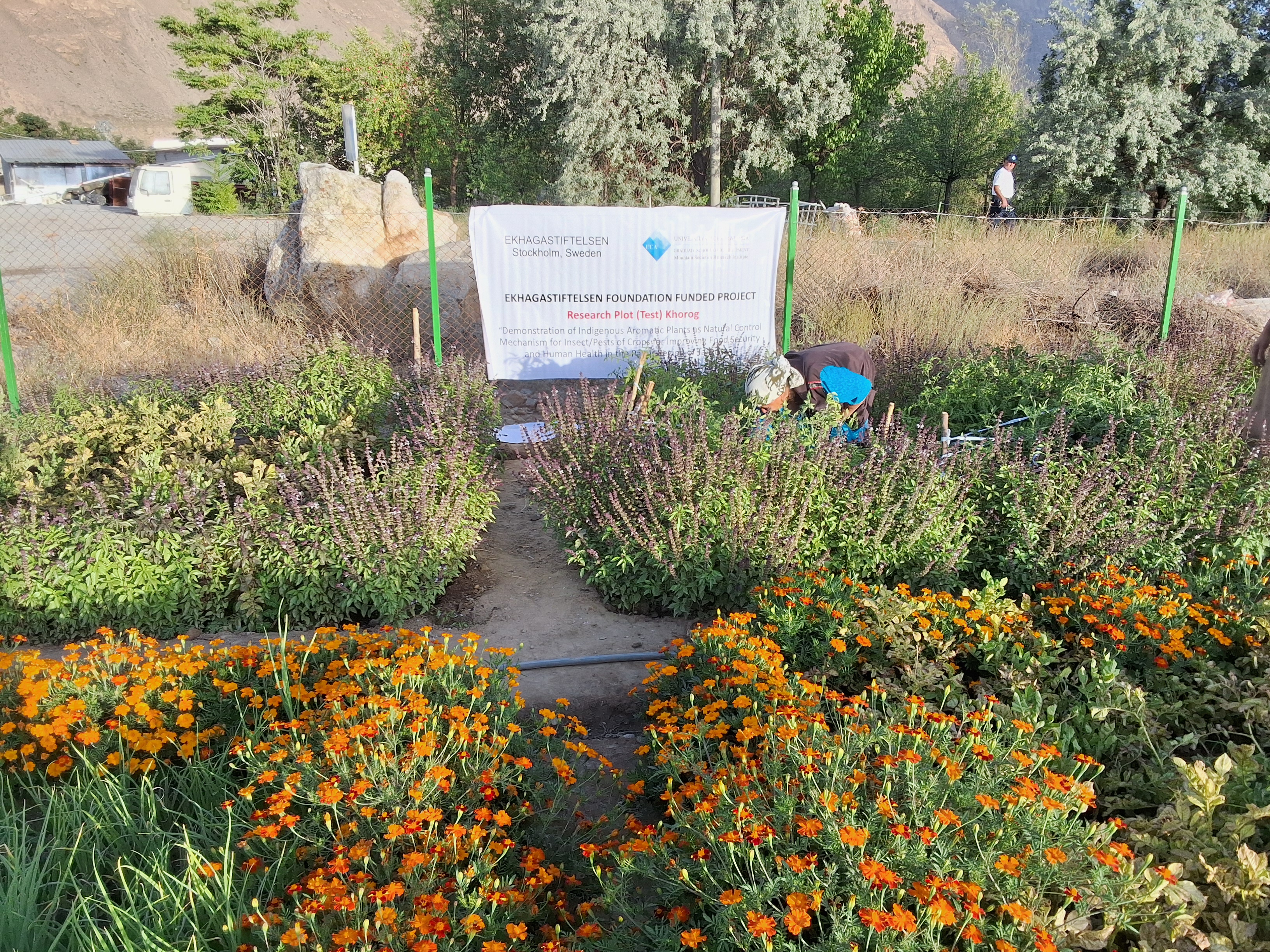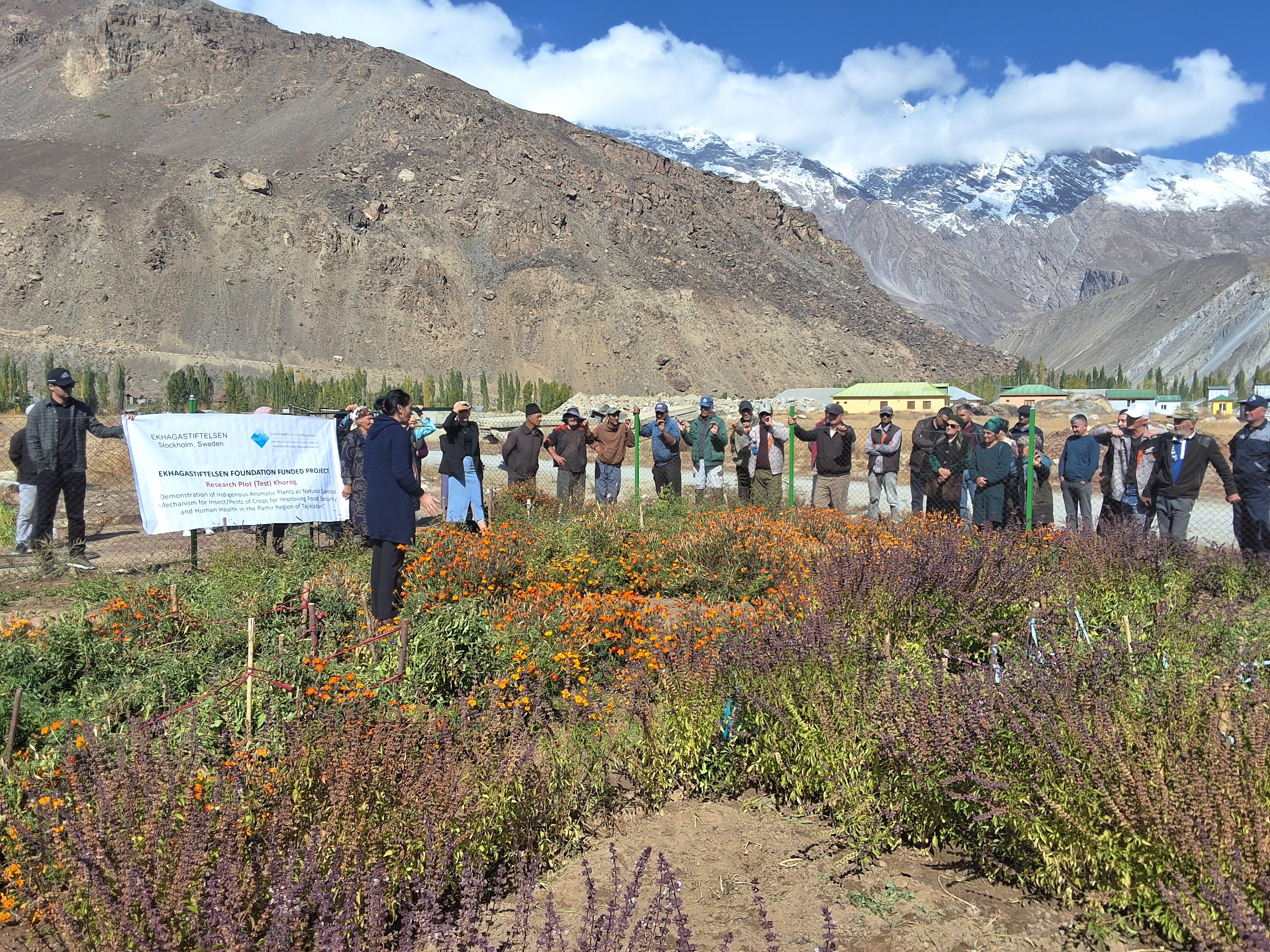Demonstration of indigenous aromatic plants as natural control mechanisms for insect/pests of crops for improving food security and human health in the Pamir region of Tajikistan
The Gorno Badakhshan Autonomous Oblast (GBAO) in eastern Tajikistan occupies 45% of the country’s area but hosts only 3% of its population. It relies heavily on subsistence agriculture, livestock, and small businesses. The region’s high-altitude mountainous terrain supports limited crops like potatoes, vegetables, and deciduous fruits, which are generally resilient to diseases. However, climate change is altering weather patterns, introducing new insect pests, and threatening the livelihoods of local farmers, especially women farmers. Traditional ecological knowledge of using indigenous aromatic plants for pest control is declining, and modern pesticides are either unaffordable or inaccessible for most farmers in remote areas. Misuse of chemical pesticides has further harmed biodiversity and public health.
Revitalising traditional practices is urgently needed to promote sustainable, eco-friendly pest control methods. This strategy would improve crop production, increase livelihoods, and safeguard the ecosystem from the detrimental impacts of chemical fertilizers, insecticides, and pesticides. Involving farmers in participatory research and demonstrations can close the knowledge gap and strengthen social systems.
This project addresses the growing threat of crop-damaging insects in the Pamir region of Tajikistan, caused by climate change and limited access to chemical pesticides. It seeks to revive traditional ecological knowledge by testing indigenous aromatic plants - such as peppermint, marigold, basil, and wormwood - as natural insect repellents. The project promotes sustainable, low-cost pest control alternatives that support food security, biodiversity conservation, and improved livelihoods, especially for smallholder and women farmers in high-mountain communities.
The project is implemented by the University of Central Asia's Mountain Societies Research Institute (MSRI), in collaboration with Pamir Biological Institute (PBI). The project is funded by the Ekhagastiftelsen Foundation, Danderyd, Sweden.
Major Project Activities:
- Selection and acquiring land for research plots in two ecological zones (single and double cropping zones on an annual rent basis) and establishment of research trial plots in 200 sq. meter area in each zone.
- Developing a research team (two local Research Assistants in each site) and providing them basic training on proper data collection and overall management of the research plots.
- Procurement and arrangement of seeds/seedlings of selected crops i.e., potato, tomato, and onion, for establishment of research plots from certified sources.
- Sowing/planting of 3 selected vegetable crops in research plots in two selected sites, with 3 replications, with one plot as Test (treatment with aromatic plants) and the other plot without any treatment. The same amount of farmyard manure was applied to both plots, but no chemical fertilizer only organic animal manure was applied in both plots.
- Regular observation and data collection on growth parameters, insect pest dynamics etc., from both plots by local Research Assistants and regular weekly and monthly monitoring by UCA MSRI staff and PBI Entomologist.
- Harvesting and data compilation on all parameters and yield calculation, and comparative analysis between Test and control plots.
- Organising Farmer’s Field Day and sharing the research findings from both the plots with the farmers to demonstrate organic food production without using chemical fertilizers and insecticides or pesticides and without damaging the natural environment, public health, and local biodiversity.



